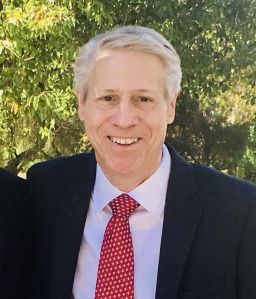Editor’s Note: John Heubusch is the executive director of the Ronald Reagan Presidential Foundation and Institute, which is presenting the Reagan Institute Summit on Education on April 11 and 12. He is also the author of the best-selling novel, “The Shroud Conspiracy.” The opinions expressed in this commentary are his own.
Whereas so many other school tragedies seem to play out quickly in the media, fading from one news cycle to the next, the story of Parkland, Florida, nearly two months ago continues to gain attention. One lingering impression for me is the remarkable eloquence and presence demonstrated by some of the students in front of a national audience. Over the past few weeks, they’ve played at the level of some national political figures, spoken out on national TV and helped organize a major demonstration in Washington.

What is little known is that the ability of some of them to perform so effortlessly stems, in large part, from the Broward County Public Schools’ impressive debate performance program. All the middle schools and high schools in the county have a debate team, giving students a unique opportunity to research and publicly discuss issues of national importance, often from a perspective with which they personally might disagree.
Their demonstrated skills are vital anywhere, but they’re especially vital in a democracy. A government of, for and by the people needs citizens who can consider a variety of arguments, weigh their strengths and weaknesses and come to an informed opinion. Broward County’s debate program has shaped many of the Parkland students into exactly these kinds of citizens.
Are we giving other students the same opportunities, preparing them not just for a few weeks of activism, but for years as voting citizens on a wide range of issues critical to our republic?
Going by the numbers, it seems as though the answer is a resounding “no.” The most recent National Assessment of Educational Progress found that a mere 23% of students were “proficient” in civics. The trend holds true among advanced students as well. Average scores on the AP government exam were the fourth lowest of all the 45 AP exams offered by the College Board in 2016. And things don’t get better when students go off to college: A much-publicized Brookings Institution report found that 62% of college students think a campus group hosting a controversial speaker is “legally required” by the First Amendment to counterbalance that speaker with one who holds an opposing view.
This is, to put it mildly, unacceptable. All the social media tools for these young men and women, our praise for their impassioned response to a tragedy – it rings rather hollow when you consider how poorly the adults in charge have prepared them to assume the mantle of citizenship. If we truly want them to make a lasting and positive impact, we must take a serious look at the education system that has allowed a level of ignorance by many of their peers to go unchecked.
Thirty-five years ago, the Reagan administration released “A Nation at Risk,” a seminal report on the state of education in this country. It brought many grim realities to our national attention: More than 10% of 17-year-olds were essentially illiterate, 40% were incapable of reading a text and making inferences and a mere 20% could compose a persuasive essay.
Most disturbing of all, however, were the implications of these realities for democracy. “For our country to function,” the report observed, “citizens must be able to reach some common understandings on complex issues, often on short notice and on the basis of incomplete or conflicting evidence.” Its findings made clear that the United States’ education system was simply not up to the task of forging this common understanding.
Decades later, a simple scroll through Twitter or Facebook will show you that we are no closer to being able to reach this consensus than we were then. Indeed, we are arguably even farther from it. From 1976 to today, the percentage of the voting-age population that actually votes has stagnated. And, thanks to the threat of “fake” news, hyped or not, we are less and less able to discern what the truth is and how it should affect our decisions in the ballot box.
A recent study conducted by Massachusetts Institute of Technology researchers revealed that accurate news stories are disseminated about six times more slowly on Twitter than fake news. Fake political news was especially pernicious, reaching twice as many people as other, nonpolitical news – and reaching them three times faster than other news reached half that number of users.
This failure may be due in part to the lack of a unifying vision for our education system as a vital part of preparing students to become engaged members of civic society. In 2015, the Thomas B. Fordham Institute examined the mission statements of the biggest school districts in the country. More than half – 59% – lack a reference to citizenship or civics. By failing to prepare them to make choices as citizens, we’re failing to prepare them for a role they will play for the rest of their lives.
If the past few weeks have shown us anything, they have shown us that students are eager to make the most of those privileges. We, however, have not been on a broad scale eager to help them do so responsibly. It is time we take our responsibility as seriously as they do theirs. Another national conversation on education reform is long overdue.


